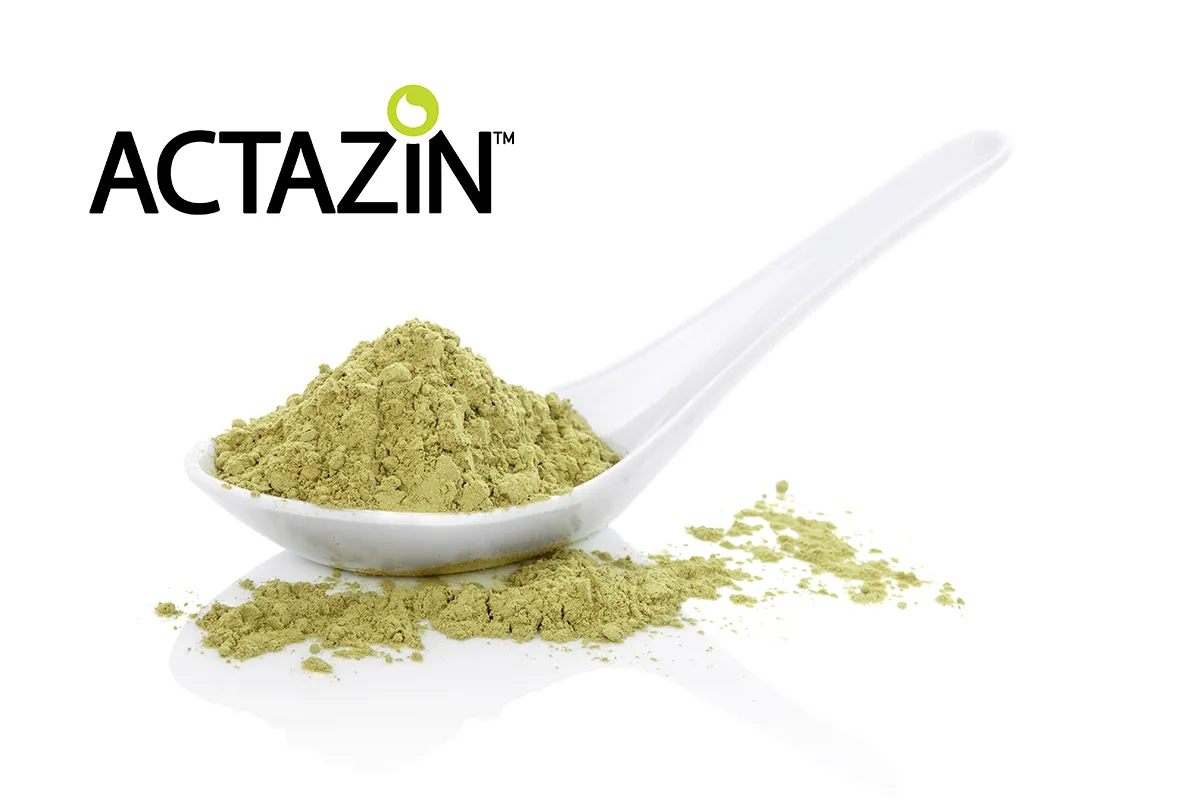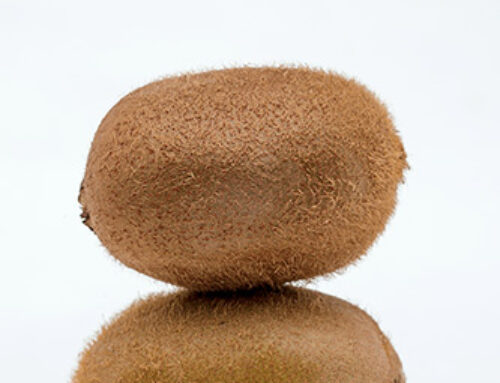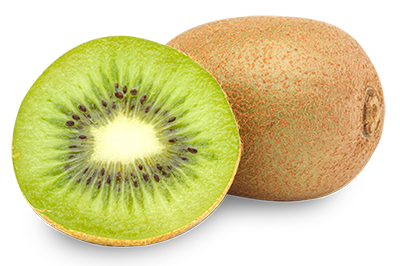Akkermansia:
The Next-Generation Probiotic
Revolutionizing Gut Health
Akkermansia muciniphila is emerging as a promising next-generation probiotic with significant potential for improving metabolic health and gut function. This anaerobic bacterium, which makes up 3-5% of a healthy gut microbiome, has been linked to numerous health benefits, including improved metabolism, reduced inflammation, and enhanced intestinal barrier function. While Akkermansia supplements are generally considered safe, more long-term studies are needed to fully understand their effects. Both live and pasteurized forms show promise, with some studies suggesting pasteurized Akkermansia may be more effective in certain applications. Actazin, a prebiotic derived from kiwifruit, has been shown to support Akkermansia growth, potentially enhancing the effectiveness of Akkermansia supplementation. As research continues, Akkermansia stands out as a key player in the future of personalized nutrition and gut health management.
What's covered:
– Introduction to Akkermansia muciniphila
– Benefits and normal levels in a healthy gut
– Methods to increase Akkermansia levels
– Safety and side effects of Akkermansia supplements
– Comparison of live vs. pasteurized Akkermansia
– Potential applications beyond obesity and diabetes
What is Akkermansia?
Akkermansia muciniphila is a gram-negative, anaerobic bacterium that resides in the human gut microbiome. First isolated in 2004, it has quickly gained attention in the scientific community due to its unique properties and potential health benefits. Akkermansia is named after Antoon Akkermans, a microbial ecologist, and "muciniphila" translates to "mucin-loving," reflecting its ability to use mucin as an energy source.
This bacterium is particularly interesting because it colonizes the mucus layer of the intestine, where it plays a crucial role in maintaining gut barrier integrity. Akkermansia has the ability to degrade mucin, the main component of the intestinal mucus layer. While this might initially seem counterproductive, it actually stimulates the production of new mucin by intestinal cells, thereby strengthening the gut barrier.
Main Benefits of Akkermansia
Akkermansia muciniphila has been associated with numerous health benefits, primarily related to metabolic health and gut function:
- Metabolic Health: Studies have shown inverse correlations between Akkermansia abundance and obesity, type 2 diabetes, and metabolic disorders.
- Gut Barrier Function: Akkermansia helps maintain and improve intestinal barrier integrity, reducing the risk of leaky gut syndrome.
- Inflammation Reduction: Higher levels of Akkermansia are associated with lower levels of systemic inflammation.
- Immune System Modulation: Akkermansia has been shown to influence immune responses, potentially benefiting conditions like inflammatory bowel disease (IBD).
- Cardiovascular Health: Some studies suggest Akkermansia may have positive effects on cardiovascular health markers.
How Much Akkermansia is Normal in a Healthy Gut?
In a healthy gut microbiome, Akkermansia muciniphila typically represents about 3-5% of the total bacterial population. However, it's important to note that this percentage can vary among individuals and may be influenced by factors such as diet, age, and overall health status.

How Can I Increase My Akkermansia Levels?
Several strategies can help increase Akkermansia levels in the gut:
- Diet: Consuming foods rich in polyphenols and prebiotics can promote Akkermansia growth. These include:
- Berries (blueberries, cranberries)
- Grapes
- Green tea
- Green kiwifruit
- Pomegranate
- Flaxseed
- Nuts
- Whole grains
- Onions and garlic
- Prebiotic Supplements: Specific prebiotics like Actazin® green kiwifruit powder, fructooligosaccharides (FOS) and inulin have been shown to support Akkermansia growth.
- Probiotic Supplements: While Akkermansia itself is not widely available as a probiotic supplement due to its anaerobic nature, some companies have developed methods to produce viable Akkermansia supplements.
- Exercise: Regular physical activity, particularly endurance training, has been associated with higher Akkermansia levels.



Is Akkermansia Safe to Take as a Supplement?
Current evidence suggests that Akkermansia muciniphila supplementation is generally safe. A clinical trial involving overweight and obese individuals found that daily supplementation with 10 billion CFU of Akkermansia for three months was well-tolerated with no significant adverse effects.
However, it's important to note that research on Akkermansia supplementation is still in its early stages, and long-term safety data is limited. As with any supplement, it's advisable to consult with a healthcare professional before starting Akkermansia supplementation, especially for individuals with pre-existing health conditions.
Potential Side Effects of Taking Akkermansia Supplements
While Akkermansia supplements are generally considered safe, some potential side effects may occur, particularly when first starting supplementation:
- Mild Gastrointestinal Discomfort: As with many probiotics, some individuals may experience temporary bloating, gas, or changes in bowel movements.
- Thirst: Some studies have reported increased thirst as a potential side effect of probiotic supplementation, including Akkermansia.
- Headaches: In rare cases, some individuals may experience headaches when starting probiotic supplements.
It's important to note that these side effects are typically mild and transient, often resolving as the body adjusts to the supplement. However, if side effects persist or worsen, it's advisable to consult a healthcare professional.
What's the Difference Between Live and Pasteurized Akkermansia?
Both live and pasteurized forms of Akkermansia have shown potential benefits in various studies:
- Live Akkermansia: This is the viable, living form of the bacterium. It can potentially colonize the gut and directly interact with the host's intestinal environment.
- Pasteurized Akkermansia: This form has been heat-treated to kill the bacteria while preserving its beneficial components. Interestingly, some studies have found that pasteurized Akkermansia may be more effective than the live form in certain applications.
The key differences lie in their mechanisms of action and stability:
- Live Akkermansia can potentially colonize the gut and produce metabolites in situ.
- Pasteurized Akkermansia cannot colonize but may have enhanced stability and potentially stronger effects on the host's immune system.
How Does Pasteurized Akkermansia Compare to Live Akkermansia in Terms of Effectiveness?
Several studies have compared the effectiveness of live and pasteurized Akkermansia, with some interesting findings:
- Metabolic Health: In a study on overweight and obese individuals, pasteurized Akkermansia showed more significant improvements in insulin sensitivity and reductions in total cholesterol compared to live Akkermansia.
- Gut Barrier Function: Both live and pasteurized forms have shown the ability to improve gut barrier function, but some studies suggest pasteurized Akkermansia may be more effective in this regard.
- Inflammation: Pasteurized Akkermansia has demonstrated stronger anti-inflammatory effects in some studies, particularly in the context of obesity and metabolic disorders.
- Stability: Pasteurized Akkermansia tends to have better stability, which can be advantageous for supplement formulation and shelf life.
While both forms show promise, current evidence suggests that pasteurized Akkermansia may have some advantages in terms of effectiveness and stability. However, more research is needed to fully understand the comparative benefits of each form across different health conditions.
Can Akkermansia Supplements Help with Conditions Other Than Obesity and Diabetes?
While much of the research on Akkermansia has focused on its potential benefits for obesity and diabetes, emerging studies suggest it may have broader applications:
- Inflammatory Bowel Disease (IBD): Some studies indicate that Akkermansia may help reduce inflammation and improve gut barrier function in IBD.
- Cardiovascular Health: Akkermansia supplementation has been associated with improvements in certain cardiovascular risk factors.
- Cancer Immunotherapy: Preliminary research suggests that Akkermansia may enhance the efficacy of certain cancer immunotherapies.
- Neurodegenerative Diseases: There's growing interest in the potential role of Akkermansia in conditions like Alzheimer's and Parkinson's disease, though more research is needed.
- Aging: Some studies suggest Akkermansia may have anti-aging effects, potentially by modulating inflammation and metabolism.
However, it's important to note that many of these potential applications are still in the early stages of research, and more clinical studies are needed to confirm these effects in humans.

Are There Any Long-Term Studies on the Use of Akkermansia Supplements?
While Akkermansia has shown promising results in numerous studies, long-term studies on its use as a supplement are currently limited. Most clinical trials to date have been relatively short-term, typically lasting a few months.
The longest human trial reported so far was a 3-month study involving overweight and obese individuals, which found Akkermansia supplementation to be safe and potentially beneficial for metabolic health. However, this still falls short of what would be considered a long-term study.
More extensive, long-term clinical trials are needed to fully understand the safety and efficacy of Akkermansia supplementation over extended periods. These studies will be crucial in determining the optimal dosage, duration of use, and potential long-term effects or benefits of Akkermansia supplements.
How Does Akkermansia Interact with Other Probiotics or Supplements?
Akkermansia muciniphila's interactions with other probiotics and supplements are an area of ongoing research. Some key points to consider:
- Synergistic Effects: Some studies suggest that Akkermansia may work synergistically with other probiotics. For example, a combination of Akkermansia with certain Lactobacillus and Bifidobacterium strains has shown enhanced benefits in some animal studies.
- Prebiotic Interactions: Certain prebiotics, particularly those rich in polyphenols, can enhance the growth and activity of Akkermansia.
- Antibiotic Sensitivity: While Akkermansia shows resistance to some antibiotics, it's sensitive to others. This is important to consider if taking antibiotics concurrently with Akkermansia supplements.
- Dietary Supplements: Some dietary components, such as polyphenols found in cranberry extract or grape seed extract, have been shown to promote Akkermansia growth.
However, more research is needed to fully understand how Akkermansia interacts with various probiotics and supplements in the complex ecosystem of the human gut.
How Does Actazin® Support Akkermansia Growth?
Actazin®, a cold-processed green kiwifruit powder, has been shown to support the growth of Akkermansia muciniphila in several ways:
- Increased Mucin Production: Actazin has been shown to stimulate mucin production in the gut. Since Akkermansia feeds on mucin, this increased production can support its growth.
- Microbiome Modulation: Actazin can influence the overall composition of the gut microbiome, creating an environment that favors the growth of beneficial bacteria like Akkermansia.
- Improved Bowel Function: By supporting regular bowel movements, Actazin helps maintain a healthy gut environment, which is conducive to Akkermansia growth.

Does Actazin Directly Increase Akkermansia Levels?
As a mucin degrader, Akkermansia does not feed on Actazin or other plant fibres, however studies have shown that Actazin consumption can lead to an increase in Akkermansia abundance:
- In a clinical study, consumption of Actazin led to an increase in the relative abundance of Akkermansia. Although this increase was not statistically significant, the levels of Akkermansia at the end of the study were significantly higher in those consuming Actazin compared to those taking a placebo.
- In an artificial gut system study (SHIME), Actazin was found to significantly increase key bacterial populations, including Akkermansia muciniphila.
Benefits of Combining Actazin with Akkermansia Supplements
Combining Actazin with Akkermansia supplements could potentially offer synergistic benefits:
- Enhanced Growth Environment: Actazin can create a more favorable gut environment for Akkermansia, potentially enhancing the effectiveness of Akkermansia supplements.
- Increased Mucin Production: The mucin-stimulating effect of Actazin could provide more "food" for supplemented Akkermansia, potentially improving its survival and colonization in the gut.
- Complementary Benefits: While Akkermansia offers specific probiotic effects, Actazin provides additional prebiotic benefits and supports overall gut health, potentially leading to more comprehensive gut health improvements.
- Improved Gut Barrier Function: Both Actazin and Akkermansia have been shown to support gut barrier integrity, and their combination might offer enhanced protection.
Conclusion
In conclusion, while Akkermansia muciniphila shows great promise as a next-generation probiotic, more research is needed to fully understand its long-term effects and optimal use. Combining Akkermansia supplementation with prebiotic support, such as Actazin, may offer a comprehensive approach to improving gut health and metabolic function. As always, it's important to consult with a healthcare professional before starting any new supplement regimen.
References:
Akkermansia muciniphila: A Next-Generation Probiotic Comes of Age. https://internationalprobiotics.org/home/akkermansia-muciniphila-a-next-generation-probiotic-comes-of-age/
Ashrafian, F., Keshavarz Azizi Raftar, S., Shahryari, A. et al. Comparative effects of alive and pasteurized Akkermansia muciniphila on normal diet-fed mice. Sci Rep 11, 17898 (2021). https://doi.org/10.1038/s41598-021-95738-5
Cani, P. D., & de Vos, W. M. (2017). Next-generation beneficial microbes: the case of Akkermansia muciniphila. Frontiers in microbiology, 8, 1765.
Chiantera, V., Laganà, A. S., Basciani, S., Nordio, M., & Bizzarri, M. (2023). A Critical Perspective on the Supplementation of Akkermansia muciniphila: Benefits and Harms. Life (Basel, Switzerland), 13(6), 1247. https://doi.org/10.3390/life13061247
Choi, Y., Bose, S., Seo, J., Shin, J. H., Lee, D., Kim, Y., Kang, S. G., & Kim, H. (2021). Effects of Live and Pasteurized Forms of Akkermansia from the Human Gut on Obesity and Metabolic Dysregulation. Microorganisms, 9(10), 2039. https://doi.org/10.3390/microorganisms9102039
Derrien, M., Vaughan, E. E., Plugge, C. M., & de Vos, W. M. (2004). Akkermansia muciniphila gen. nov., sp. nov., a human intestinal mucin-degrading bacterium. International journal of systematic and evolutionary microbiology, 54(5), 1469-1476.
Druart, C., Plovier, H., Van Hul, M., Brient, A., Phipps, K. R., de Vos, W. M., & Cani, P. D. (2021). Toxicological safety evaluation of pasteurized Akkermansia muciniphila. Journal of applied toxicology : JAT, 41(2), 276–290. https://doi.org/10.1002/jat.4044
EFSA NDA Panel (EFSA Panel on Nutrition, Novel Foods and Food Allergens), Turck D, Bohn T, Castenmiller J, De Henauw S, Hirsch-Ernst KI, Maciuk A, Mangelsdorf I, McArdle HJ, Naska A, Pelaez C, Pentieva K, Siani A, Thies F, Tsabouri S, Vinceti M, Cubadda F, Frenzel T, Heinonen M, Marchelli R, Neuhäuser-Berthold M, Poulsen M, Prieto Maradona M, Schlatter JR, van Loveren H, Ackerl R and Knutsen HK, 2021. Scientific Opinion on the safety of pasteurised Akkermansia muciniphila as a novel food pursuant to Regulation (EU) 2015/2283. EFSA Journal 2021;19(9):6780, 18 pp. https://doi.org/10.2903/j.efsa.2021.6780
Food Standards Agency & Food Standards Scotland. (2024). Safety Assessment on Pasteurised Akkermansia muciniphila Used as a Food Supplement (RP1468). FSA Research and Evidence. https://doi.org/10.46756/001c.125531
Geerlings, S. Y., Kostopoulos, I., De Vos, W. M., & Belzer, C. (2018). Akkermansia muciniphila in the human gastrointestinal tract: when, where, and how?. Microorganisms, 6(3), 75.
Goya-Jorge, E., Bondue, P., Gonza, I., Laforêt, F., Antoine, C., Boutaleb, S., … & Delcenserie, V. (2023). Butyrogenic, bifidogenic and slight anti-inflammatory effects of a green kiwifruit powder (Kiwi FFG®) in a human gastrointestinal model simulating mild constipation. Food Research International, 173, 113348.
Graham, E., McKeen, S., Lewis, E. D., Evans, M., Li, Z., Henning, S. M., … & Rosendale, D. (2024). Actazin® green kiwifruit powder consumption at 600 mg per day for 28 days improves stool form and relieves occasional constipation in healthy individuals: A randomized controlled trial. Bioactive Carbohydrates and Dietary Fibre, 32, 100436.
Gubernatorova, E. O., Gorshkova, E. A., Bondareva, M. A., Podosokorskaya, O. A., Sheynova, A. D., Yakovleva, A. S., … & Drutskaya, M. S. (2023). Akkermansia muciniphila-friend or foe in colorectal cancer?. Frontiers in Immunology, 14, 1303795.
Hagi, T., & Belzer, C. (2021). The interaction of Akkermansia muciniphila with host-derived substances, bacteria and diets. Applied microbiology and biotechnology, 105(12), 4833–4841. https://doi.org/10.1007/s00253-021-11362-3
Li, L., Li, M., Chen, Y., Yu, Z., Cheng, P., Yu, Z., … & Wang, X. (2024). Function and therapeutic prospects of next-generation probiotic Akkermansia muciniphila in infectious diseases. Frontiers in Microbiology, 15, 1354447.
Liu, E., Ji, X., & Zhou, K. (2024). Akkermansia muciniphila for the Prevention of Type 2 Diabetes and Obesity: A Meta-Analysis of Animal Studies. Nutrients, 16(20), 3440. https://doi.org/10.3390/nu16203440
Luo, Y., Lan, C., Li, H. et al. Rational consideration of Akkermansia muciniphila targeting intestinal health: advantages and challenges. npj Biofilms Microbiomes 8, 81 (2022). https://doi.org/10.1038/s41522-022-00338-4
Ma, X., Tian, M., Yu, X., Liu, M., Li, B., Ren, D., & Wang, W. (2024). Characterization and Preliminary Safety Evaluation of Akkermansia muciniphila PROBIO. Foods, 13(3), 442. https://doi.org/10.3390/foods13030442
Ottman, N., Geerlings, S. Y., Aalvink, S., de Vos, W. M., & Belzer, C. (2017). Action and function of Akkermansia muciniphila in microbiome ecology, health and disease. Best practice & research Clinical gastroenterology, 31(6), 637-642.
Panzetta, M. E., & Valdivia, R. H. (2024). Akkermansia in the gastrointestinal tract as a modifier of human health. Gut Microbes, 16(1), 2406379.
Pasteurized Akkermansia muciniphila as a postbiotic: EFSA approval and beyond. https://isappscience.org/pasteurized-akkermansia-muciniphila-as-a-postbiotic-efsa-approval-and-beyond/
Pellegrino, A., Coppola, G., Santopaolo, F., Gasbarrini, A., & Ponziani, F. R. (2023). Role of Akkermansia in Human Diseases: From Causation to Therapeutic Properties. Nutrients, 15(8), 1815. https://doi.org/10.3390/nu15081815
Rodrigues, V. F., Elias-Oliveira, J., Pereira, Í. S., Pereira, J. A., Barbosa, S. C., Machado, M. S. G., & Carlos, D. (2022). Akkermansia muciniphila and Gut Immune System: A Good Friendship That Attenuates Inflammatory Bowel Disease, Obesity, and Diabetes. Frontiers in immunology, 13, 934695. https://doi.org/10.3389/fimmu.2022.934695
Wang, K., Wu, W., Wang, Q., Yang, L., Bian, X., Jiang, X., Lv, L., Yan, R., Xia, J., Han, S., & Li, L. (2022). The negative effect of Akkermansia muciniphila-mediated post-antibiotic reconstitution of the gut microbiota on the development of colitis-associated colorectal cancer in mice. Frontiers in microbiology, 13, 932047. https://doi.org/10.3389/fmicb.2022.932047
Xue, C., Li, G., Gu, X., Su, Y., Zheng, Q., Yuan, X., Bao, Z., Lu, J., & Li, L. (2023). Health and Disease: Akkermansia muciniphila, the Shining Star of the Gut Flora. Research (Washington, D.C.), 6, 0107. https://doi.org/10.34133/research.0107
Xue, L., Zhao, Y., Wang, H., Li, Z., Wu, T., Liu, R., … & Zhang, M. (2023). The effects of live and pasteurized Akkermansia muciniphila on DSS-induced ulcerative colitis, gut microbiota, and metabolomics in mice. Food & Function, 14(10), 4632-4646.
Yan, J., Sheng, L., & Li, H. (2021). Akkermansia muciniphila: is it the Holy Grail for ameliorating metabolic diseases? Gut Microbes, 13(1). https://doi.org/10.1080/19490976.2021.1984104
Zhao, Y., Yang, H., Wu, P., Yang, S., Xue, W., Xu, B., … Xu, D. (2024). Akkermansia muciniphila: A promising probiotic against inflammation and metabolic disorders. Virulence, 15(1). https://doi.org/10.1080/21505594.2024.2375555
Zhou K. (2017). Strategies to promote abundance of Akkermansia muciniphila, an emerging probiotics in the gut, evidence from dietary intervention studies. Journal of functional foods, 33, 194–201. https://doi.org/10.1016/j.jff.2017.03.045











